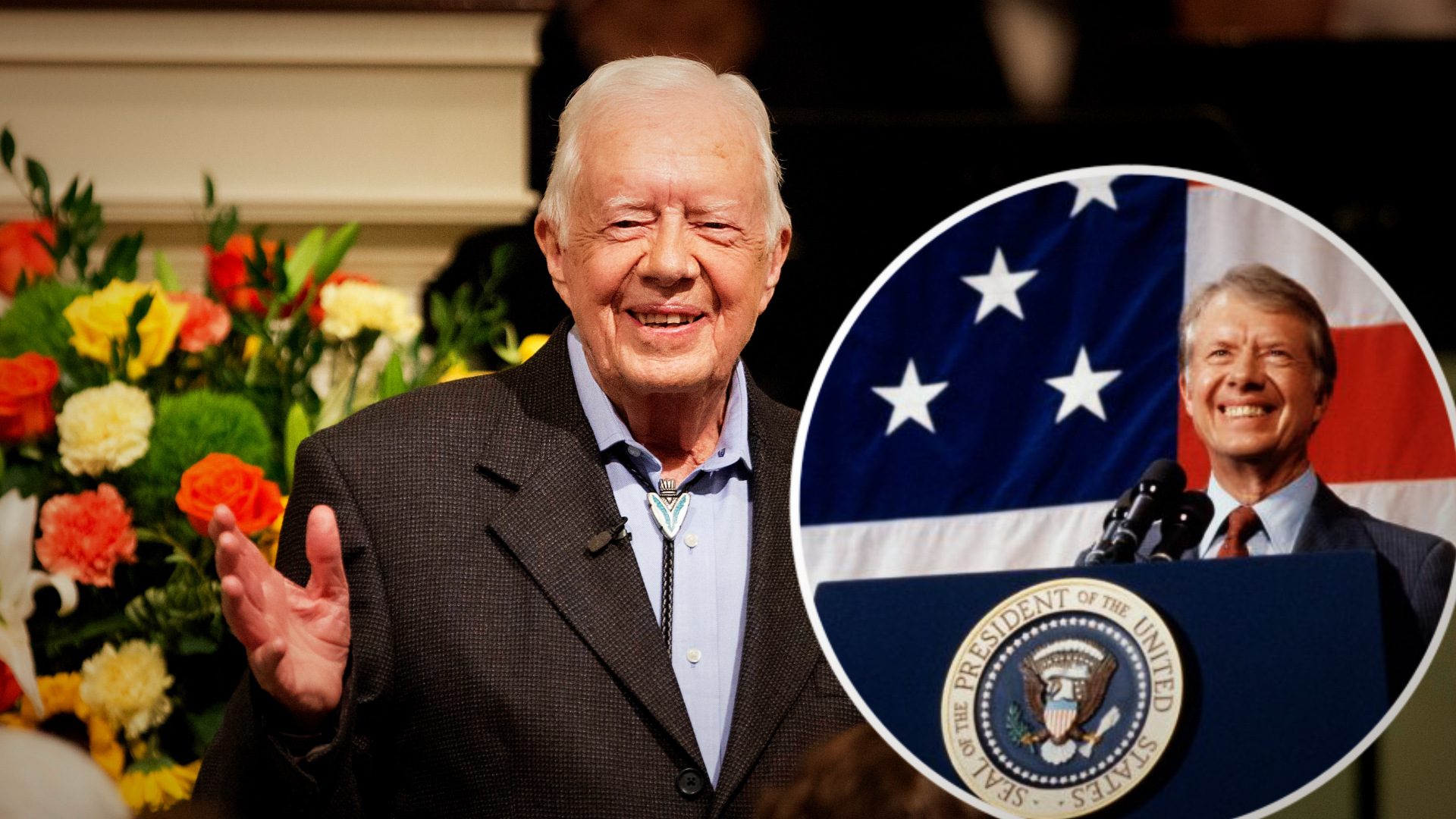Jimmy Carter: A Life of Service, Compassion, and Humanity

The world bids farewell to former U.S. President Jimmy Carter, who passed away peacefully on December 29, 2024, at the age of 100. His life, spanning over a century, was defined by a steadfast commitment to public service, humanitarian work, and global peace.

David Hume Kennerly/Getty ImagesEarly Life and Naval Career
Born on October 1, 1924, in the small town of Plains, Georgia, Jimmy Carter grew up on his family’s peanut farm, instilling in him a deep connection to the land and its people. He graduated from the U.S. Naval Academy in 1946 and served as a naval officer, specializing in submarine operations. After seven years in the Navy, Carter returned to Plains to manage his family’s peanut farming business following his father’s death.
The Political Journey
Carter’s entry into politics began in the Georgia State Senate, where he served from 1963 to 1967. His tenure as Governor of Georgia (1971–1975) marked him as a progressive leader committed to civil rights, education reform, and government efficiency.
In 1976, Carter won the Democratic presidential nomination as a Washington outsider. His honesty, integrity, and promise to restore trust in government resonated with voters, securing his victory over incumbent President Gerald Ford.
Jimmy Carter and his wife, Rosalynn, in New York, July 15, 1976. (AP Photo, File)
Presidency (1977–1981)
Carter’s presidency was characterized by both groundbreaking achievements and significant challenges:
Notable Achievements:
- Camp David Accords (1978):
Carter brokered a historic peace agreement between Egypt and Israel, earning praise for his diplomatic acumen. - Panama Canal Treaties:
Negotiated agreements to return control of the Panama Canal to Panama, strengthening U.S.-Latin America relations. - Energy Policy:
Carter emphasized energy conservation, renewable resources, and reducing dependence on foreign oil, laying the foundation for modern energy policy. - Human Rights Advocacy:
Carter championed human rights as a cornerstone of U.S. foreign policy, promoting democracy and condemning authoritarian regimes worldwide.
Challenges:
- Iran Hostage Crisis (1979–1981):
The prolonged captivity of 52 Americans overshadowed his presidency, contributing to his loss in the 1980 election to Ronald Reagan.
Jimmy Carter, flanked by Secretary of State Cyrus Vance, right, and foreign policy adviser Zbigniew Brzezinski, left, in Washington, Feb. 14, 1979. (AP Photo/Bob Daugherty, File)
- Economic Struggles:
Stagflation, rising unemployment, and an energy crisis created domestic dissatisfaction during his tenure.
A Transformational Post-Presidency
After leaving the White House, Carter embarked on a second, arguably even more impactful, phase of his life.
The Carter Center:
Founded in 1982 with his wife Rosalynn Carter, The Carter Center focused on:
- Promoting human rights.
- Monitoring elections in over 100 countries.
- Eradicating diseases like Guinea worm, river blindness, and malaria.
Habitat for Humanity:
Carter and Rosalynn became global ambassadors for Habitat for Humanity, personally building homes and inspiring countless volunteers.
Nobel Peace Prize (2002):
Carter was awarded the Nobel Peace Prize for his dedication to peace, democracy, and disease eradication efforts.
Personal Life and Resilience
Carter’s marriage to Rosalynn Carter, spanning 77 years, was a cornerstone of his life. Together, they raised four children and supported each other through decades of public service and personal challenges.
In 2015, Carter was diagnosed with metastatic cancer, which he overcame through innovative treatments. Despite his advancing age and health issues, he continued to inspire through his activism and writings.
Former President Jimmy Carter and his wife, Rosalynn, June 10, 2015, in Atlanta. (AP Photo/John Bazemore, File)
In February 2023, Carter entered hospice care, choosing to spend his final days in Plains, surrounded by family. Rosalynn passed away just a month earlier in November 2023 at 96.
A Lasting Legacy
Jimmy Carter’s life was a testament to humility, compassion, and service. From rural Georgia to the global stage, he remained a tireless advocate for the voiceless and underserved.
Carter’s Legacy in Numbers:
- Over 40 years of humanitarian work post-presidency.
- Elections monitored in 112 countries.
- Guinea worm disease cases reduced from 3.5 million to fewer than 20 annually.
Inspiring Future Generations:
Carter’s commitment to peace, justice, and humanity will continue to inspire leaders and citizens worldwide. His approach to leadership—anchored in faith, empathy, and action—serves as a model for creating meaningful change.
Final Thoughts
Jimmy Carter once said:
“My faith demands that I do whatever I can, wherever I am, whenever I can, for as long as I can with whatever I have to try to make a difference.”
His life exemplified this ethos. As we mourn his passing, we celebrate a man who truly made the world a better place.
Featured image credit: (AP Photo/John Bazemore, File, AP Photo/Bob Daugherty, David Hume Kennerly/Getty Images)





